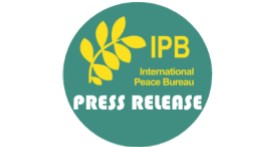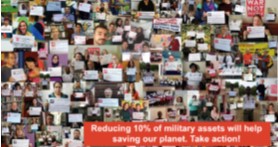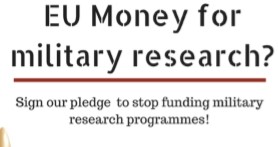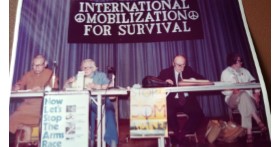Today we are launching #YouAllOweUs virtual campaign. Please, feel free to share the materials with other activists and organizations.
New materials and how we will use it: #YouAllOweUs campaign
You will find the new infographics on the GCOMS website: http://demilitarize.org/materials-owe-us-gdams-campaign/
- 2 general images where Trump reminds global political leaders committed with increasing military spending that they all owe money and cooperation to the US for his role as world’s guard (starting from the idea of the 2%GDP he requires from NATO members and how he addressed Germany in these terms). We can see here how people are demanding politicians to take action instead on fulfilling the SDG’s.
- Images of global political leaders committed with the increase in military expenditure. They are chosen based on their representativity and their public advocacy of the increase. Only 2 European leaders were chosen, despite a lot more countries being involved in the increase. We are conscious that, as for instance, Africa is only represented trough Al-Sisi. If you miss a leader or a territory, send us a representative sentence where he/she claims for the need to rise MilEx and all the information (including concrete sentences) and we will try to add new ones if necessary.
[IMPORTANT] How we will use this material: As mentioned, we all (partners but also organizations that can collaborate with us) will launch on May 16th the images on our social networks under the hashtags #YouAllOweUs (Health and wellbeing, better education, gender equality, etc) and #MovetheMoney #GDAMS2018
The idea is to combine the first image (the one with all the leaders) with one of the singles, adding those SDG’s or petitions we think military spending must be moved to, reminding political leaders what their priorities should be. You’ll find an example here: http://demilitarize.org/wp-content/uploads/2018/04/Tweet_You_Owe_Us.jpg










